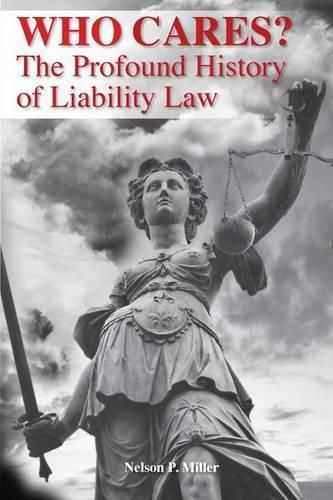Readings Newsletter
Become a Readings Member to make your shopping experience even easier.
Sign in or sign up for free!
You’re not far away from qualifying for FREE standard shipping within Australia
You’ve qualified for FREE standard shipping within Australia
The cart is loading…






This title is printed to order. This book may have been self-published. If so, we cannot guarantee the quality of the content. In the main most books will have gone through the editing process however some may not. We therefore suggest that you be aware of this before ordering this book. If in doubt check either the author or publisher’s details as we are unable to accept any returns unless they are faulty. Please contact us if you have any questions.
Law today misnames civil liability as tort law when instead we should call it the law of care or better yet the law of love. Don’t be surprised that law has always concerned itself so much with love. This book examines the earliest recovered law fragments from 4,500 years ago, reflecting even then the venerated law of care. Chapters survey civil-liability laws from Hammurabi’s Code 4,000 years ago to the Covenant Code 3,500 years ago, Christ 2,000 years ago, Roman codes 1,500 years ago, old-English laws 1,000 years ago, and natural-law treatises 500 years ago, up to the Declaration of Independence and early American jurists 200 years ago. All knew and reflected care’s critical value to law. Civil-liability law needs this historical and philosophical perspective, given its present political attention, special-interest lobbying, propaganda-like attacks, judicial reversals, and piecemeal and no-fault legislation. Materialism strips civil-liability law of history, dignity, and value, replacing the law of care with utilitarian doctrines calling care a burden, cost, or loss. Care is instead law’s organizing concept, prime goal, and principal value. We need to know what civil liability meant from beginning of recorded time, how the wise handed it down through the ages, and what it means to us today. We need a natural history of the law of love. Who cares? We should all care. Love harms no neighbor but instead fulfills the law.
$9.00 standard shipping within Australia
FREE standard shipping within Australia for orders over $100.00
Express & International shipping calculated at checkout
This title is printed to order. This book may have been self-published. If so, we cannot guarantee the quality of the content. In the main most books will have gone through the editing process however some may not. We therefore suggest that you be aware of this before ordering this book. If in doubt check either the author or publisher’s details as we are unable to accept any returns unless they are faulty. Please contact us if you have any questions.
Law today misnames civil liability as tort law when instead we should call it the law of care or better yet the law of love. Don’t be surprised that law has always concerned itself so much with love. This book examines the earliest recovered law fragments from 4,500 years ago, reflecting even then the venerated law of care. Chapters survey civil-liability laws from Hammurabi’s Code 4,000 years ago to the Covenant Code 3,500 years ago, Christ 2,000 years ago, Roman codes 1,500 years ago, old-English laws 1,000 years ago, and natural-law treatises 500 years ago, up to the Declaration of Independence and early American jurists 200 years ago. All knew and reflected care’s critical value to law. Civil-liability law needs this historical and philosophical perspective, given its present political attention, special-interest lobbying, propaganda-like attacks, judicial reversals, and piecemeal and no-fault legislation. Materialism strips civil-liability law of history, dignity, and value, replacing the law of care with utilitarian doctrines calling care a burden, cost, or loss. Care is instead law’s organizing concept, prime goal, and principal value. We need to know what civil liability meant from beginning of recorded time, how the wise handed it down through the ages, and what it means to us today. We need a natural history of the law of love. Who cares? We should all care. Love harms no neighbor but instead fulfills the law.